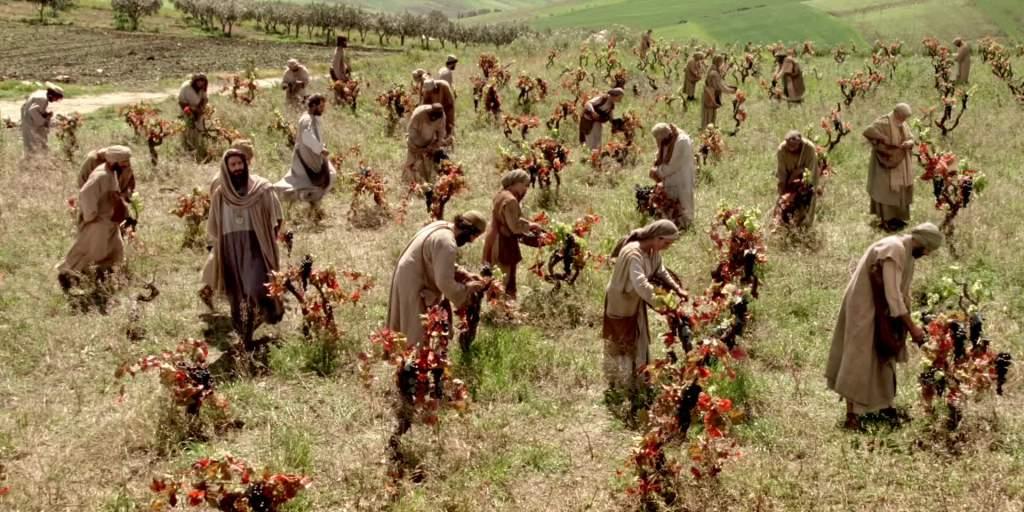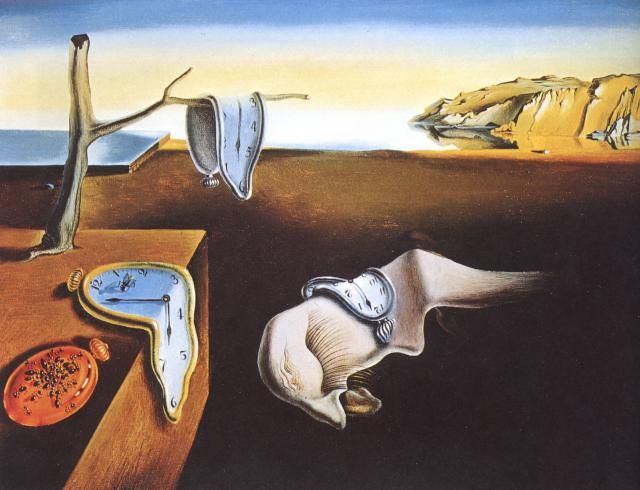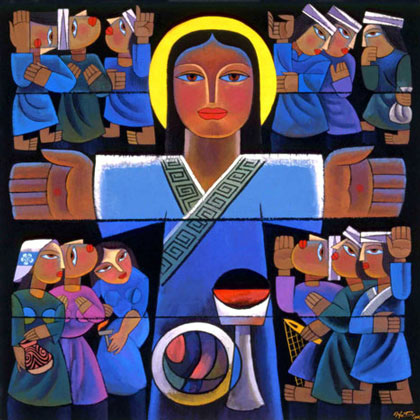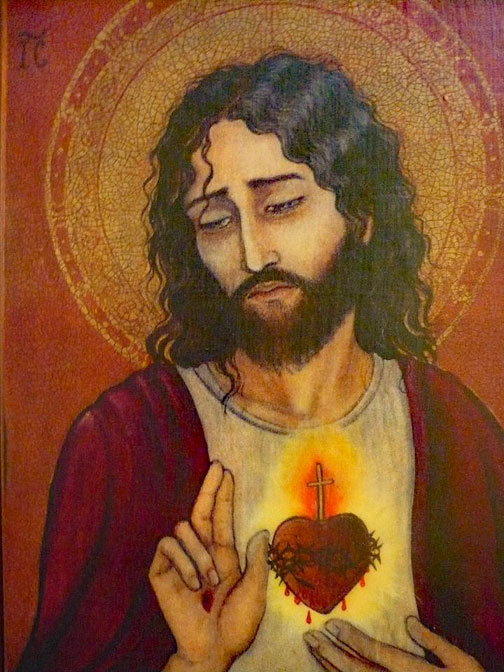
Laborers in the Field
It's Not Fair!
The first group of laborers spent the day bent low over the rows of dusty vines, bitten by mosquitoes, battling wasps for the ripe clusters of fruit, hauling heavy baskets to the wagon that would carry the grapes to the winepress. At last the sun begins to set and the paymaster arrives; backs aching, fingers bloody, clothing stained, they watch in disbelief: those slackers who didn’t even roll out of bed until noon were paid the same — not to mention the bums who sauntered in at five, when most of the work was done! What!?!?

Staring at the coins in our hands in disbelief — suddenly our pay doesn’t seem like enough. Frowning, feeling ill-used, we take our complaint to the owner, “It isn’t fair!” But he merely shrugs his shoulders, “A deal’s a deal; you got what you agreed to. It’s my money, surely I can do with it as I please. Why does my generosity bother you?” (Actually, he says: “Are you greedy because I am generous?”)
Shaking our heads, we stuff the now seemingly-insufficient pay into our pockets and go away, grumbling. Why does it bother us? Well… because if you’re going to be generous with somebody, you should be generous with me!
We weren’t ill-used, but we are dissatisfied — although ten minutes ago, before the paymaster arrived, we were fine; grateful, even, for the work and the wages. But now the genie is out of the bottle: we’ve seen what others receive; compared to them, we think we’ve been treated unfairly. We want more.
Pharisees, Old and New
 A few minutes later, the disciples come to the Lord to tell Him that the Pharisees thought that this parable was directed at them. Jesus says, so be it; if the shoe fits… Simply: God can do — and will do — as He pleases. If the divine set up is “last in, first out,” that’s just how it’s going to be. They don’t have to like it, and God doesn’t need their permission.
A few minutes later, the disciples come to the Lord to tell Him that the Pharisees thought that this parable was directed at them. Jesus says, so be it; if the shoe fits… Simply: God can do — and will do — as He pleases. If the divine set up is “last in, first out,” that’s just how it’s going to be. They don’t have to like it, and God doesn’t need their permission.
Because this parable addresses wages in return for hours worked, we moderns are inclined to see it within the context of labor rights; as a union issue. But the Pharisees understood rightly: they knew that Jesus was speaking of the riches of the Kingdom of God as earned by our efforts — and especially, in this case, as a reward for length of service. Also sometimes called “works righteousness,” it’s claiming of honor on earth and priority seating in heaven because of our accomplishments — our observance of fasts, regular prayer, worship, virtuous living, good deeds, etc. It’s not an uncommon belief, even today and, not surprisingly, those who subscribe to it also believe that they will be at the head of the line.
But that same kind of thinking exists in subtler forms, too, and we’re all susceptible: we’ve been working at a project, committed ourselves to it, and it hasn’t been easy: there have been problems to surmount, challenges to overcome, but we’ve kept to the task. Therefore, we should be rewarded for our efforts — and we don’t want to wait for the Next Life, either; we want it now. We’re been (generally) (sort of) (mostly) good, and therefore we [ahem] deserve rich blessings and happy lives in return; we’ve earned it. We rarely stop to consider this viewpoint, we just assume it to be so. … until something bad happens.
Recently a woman athlete declared, after suffering a career-ending injury, that “there is no God,” giving voice to this same faulty notion: God, if He exists, will consistently reward us with what we think we deserve. And our desire for good things — alongside our misplaced faith in our own virtues — is nearly limitless. Therefore, if we don’t get our way, there is no God. (Of course there are all sorts of “gods,” but that’s another conversation.)
 There is a certain logic in this belief, Christians claim that God is just: the fair and merciful Lord of our lives — and so we want and expect fairness. Fairness, however, is a relative term, and we’re always the closest relative. The truth is, we don’t want fairness from God, we want an edge; we want preferential treatment: we want more. We want to keep playing the game in perfect health; we want ease and comfort and success, fun and friends and family, a dog resting on the hearth and a cat sitting on the window sill.
There is a certain logic in this belief, Christians claim that God is just: the fair and merciful Lord of our lives — and so we want and expect fairness. Fairness, however, is a relative term, and we’re always the closest relative. The truth is, we don’t want fairness from God, we want an edge; we want preferential treatment: we want more. We want to keep playing the game in perfect health; we want ease and comfort and success, fun and friends and family, a dog resting on the hearth and a cat sitting on the window sill.
Then we become the grumbling vineyard workers when life (and God) can seemingly turn against us, depriving us of what we consider our due. It isn’t fair!
Late, but Not Too Late
I’ve thought about this a lot over the past several months; I’ve thought about the confusion, sorrow, resentment, and anger we feel in the face of illness and suffering and death. I’ve felt that sense of being deprived, shortchanged — of being robbed when friends are taken from us, and I’ve repeatedly been drawn back to this parable.

Everything hinges on those latecomers. We’re taken aback, resentful, even, because we, naturally, identify with those hardworking laborers who spent the day sweating and swatting flies in the vineyard, and then there they come — not only being paid the same, but being paid first! They are at the head of the line!
What is it about these laborers who arrived at noon, in late afternoon, or an hour or so before the workday ended? Who are they and how do they fit into the (Holy) Spirit of Jesus’s parable? What message do they bring?
![]() I wonder. What if that’s all the time they had? What of the young man who arrived at noon with only a half-day to spend in the vineyard — yet he gave all that he had? What of the infant who came in the late afternoon with but an hour or two in the sun? What of the young woman who was overcome by exhaustion and could go no further? According to the Lord, they received the full blessings: that’s what divine fairness looks like. Who could be so greedy as to begrudge them a full share?
I wonder. What if that’s all the time they had? What of the young man who arrived at noon with only a half-day to spend in the vineyard — yet he gave all that he had? What of the infant who came in the late afternoon with but an hour or two in the sun? What of the young woman who was overcome by exhaustion and could go no further? According to the Lord, they received the full blessings: that’s what divine fairness looks like. Who could be so greedy as to begrudge them a full share?
God’s mercy and grace is not conditional on time served — not in hours in the pews or in the pulpit, nor in years of prayers or good works. God doesn’t keep a timesheet. Coming when the Lord calls is all that is required.
And I wonder if those who are present for only a short time bring something special and important to the harvest; maybe a gentler touch, a new energy and enthusiasm, perhaps a clearer vision — recognizing ripe fruit that the weary, dusty laborers have overlooked. Perhaps their brief stay inspires others to better appreciate the transience of our stay here, and on God’s good gifts of life and love, of beauty and hope.
God Will Do…
 Jesus’ parable reminds us that every willing spirit, everyone who answers Christ’s call has a share in the divine blessings. Nobody gets priority seating, nobody has to sit behind a pillar in the back of the room. God’s grace is freely given: God will do whatever God darned well pleases; that’s been clear from the beginning, and for that we should all be grateful. We’re all latecomers.
Jesus’ parable reminds us that every willing spirit, everyone who answers Christ’s call has a share in the divine blessings. Nobody gets priority seating, nobody has to sit behind a pillar in the back of the room. God’s grace is freely given: God will do whatever God darned well pleases; that’s been clear from the beginning, and for that we should all be grateful. We’re all latecomers.
We’re blessed, absolutely, utterly, perfectly: we’ve been called to a Way of Life; received an assurance of God’s love and mercy, the gift of forgiveness and renewal, the abiding Presence which speaks to us and for us when our hearts are too full for words. That’s the glorious Open Secret of Christ Jesus: “Follow Me,” and sin and death, hopelessness and despair are destroyed — their power over us eliminated.
The Good News
It is the message of the Gospel: the assurance of God’s goodwill toward us, of God’s astonishing generosity and absurdly abundant love. Our hearts should be at peace, all efforts to earn divine prestige should cease, all claims of holier than thou-ness be put to rest; it’s not a competition, we’re all in this together, old or young or in-between, newbie or cradle Christian.

We are to follow the Way of the Lord not out of fear of condemnation, but in joyful gratitude for the call we have received, the life we have been given. We come when called, we do what we can; whatever we do, we do for love and in the spirit of thankfulness — in gratitude for a grace we can never “repay.”
What can we do to earn more than God’s gracious love? What more can there possibly be? If we’ve got that, we’ve got it all. That can surely suffice, if we are sufficiently mindful; if we understand how that divine love and grace is spread out before us in all that we encounter, if we truly realize that that Love surrounds us. How can we have more than everything that is, how can we have greater riches than Eternal Love and Light?Consolation
The Good News as revealed in this parable helped to ease my own grumbles, for I, too, have been unhappy with I have (not) received. Over a very short time three people very precious to me have died — two quite suddenly, unexpectedly, and I miss them terribly; I feel their loss in the depths of my being. I’d kept my complaint to myself: outwardly accepting, inwardly feeling robbed, shortchanged, cheated. I wanted more more of their friendship and their wisdom, more conversations and camaraderie, more smiles and laughter, more hugs and heart-shaped emojis. Their stays were too brief. Dammit, Lord! I wanted more!! It isn’t fair!![]()
Seeing myself reflected in the greedy laborers; in my yearning for still more than what I have been given, was a healing: a spiritual breakthrough. I realized that my beloved friends and I were brought together by divine design, that I was blessed and privileged to have been called to walk alongside them for a part of my earthly sojourn. They answered the Call and gave fully of themselves as long as they were able, and I am confident that they are rejoicing in the Glorious Presence. I can begrudge them nothing, though their day’s labor seemed brief.
And so I can go forth grateful instead of grumbling. Our intersecting lives are miracles of Expert timing and holy munificence. Every day truly is a gift and a blessing, and our loved ones are divine presents strewn along our path. We are blessed anew in the remembrance of our time together.
Of course I still miss them; grief is the natural human response to death and should not be suppressed, but expressed, honestly. Our sorrow is not a sign of lack of faith, but evidence of the power of love, testimony to the grace and joy of our human connections. Our Lord Jesus wept at the news of Lazarus’ death — sharing the grief of His friends; understanding us, holding our hurt in His heart.

Thanks-Giving
I remembering reading a biography of a fellow whose mother died when he was quite young — perhaps 6 or 7; he wrote that his father, a rabbi, walked out of the room where the body of his young wife lay, raised his eyes to heaven, and cried out a prayer of praise to God. Many years later the child — now a man — still did not understand it; resented it, that his father would celebrate the God who had allowed the woman he loved to die. It seemed madness, counter to all reason — yet it was the beginning of wisdom. Few of us can make such a leap of faith in the midst of our sorrows, but it is true: our gratitude in their having lived is far greater than our grief at their dying. But sometimes it’s hard to see past the tears.
In time, with God’s grace, we learn to rejoice, to give thanks, to celebrate, to remember, and to shout out that all is not over. Death is not the end. God has the last word, and that Word is Christ: the resurrection and the life eternal.
In Him was life,
and that life was the light of all humanity.
The Light shines in the darkness,
and the darkness did not,
has not,
and shall never overcome it.
~ John 1:4-5

And I bid farewell, vaya con Dios, to all those laborers who have departed having given me far more than I deserve. Thank you for being a part of my Journey. And thank You, God, for them.
What more can there be than God’s gracious love? If we’ve got that, we’ve got it all. Let us rejoice and give thanks! Amen.
Deborah ✝
Suggested Spiritual Exercise
Give thanks to the glorious, abundantly generous Lord God for the beautiful souls who have blessed your life.